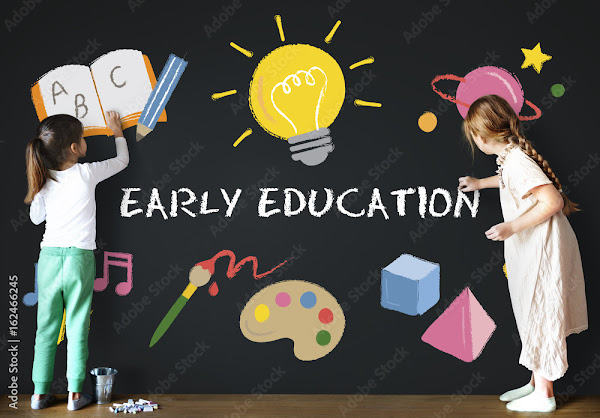It's the reason early childhood education is critical. It's a crucial and formative period in the development of a child. Their experiences and opportunities during these early years profoundly impact their future learning and development.
What Is Early Childhood Education?
Early childhood education refers to the education and care of young children from birth to age eight. This period is essential because their brains rapidly develop, and their experiences shape their learning and growth. It encompasses various programs and settings, including nursery, preschool, pre-kindergarten, and child care centers.
These programs provide children with a safe and nurturing environment where they can learn and develop through play, exploration, and interaction with their peers and teachers.
The curriculum in early childhood education typically includes activities that support the development of language and communication, cognitive skills, social-emotional skills, and physical skills. If you would be interested in nursery programs for your child, you have to scout for an excellent facility early on.
It Sets The Foundation For Future Learning
As previously mentioned, children's brains rapidly develop during these early years, and those who participate in high-quality early childhood education programs have been shown to have better cognitive, language, and social-emotional development. They also tend to do better in school and have higher graduation rates.
It Enhances Critical Thinking
Early childhood education programs can help children develop the cognitive, language, and social-emotional skills necessary for critical thinking by providing a safe and nurturing environment where children can learn and grow.
Play-based learning is one approach used in early childhood learning programs. It's an effective way to enhance critical thinking skills in young children since it allows them to explore, experiment, and problem-solve.
Early childhood education programs encourage children to ask questions and are curious about the world around them. It provides opportunities for children to explore and investigate, where they learn to think critically and make connections between different concepts and ideas.
It also promotes problem-solving skills by providing opportunities for children to work through problems and come up with solutions. Many activities in the program give children choices to allow them to make decisions by themselves, which helps develop autonomy. It encourages them to think independently, make decisions, and take responsibility for their actions.
The program fosters a positive learning environment that's safe and nurturing. Here, children feel respected and valued, which is crucial for developing critical thinking skills. When children feel secure, they are more likely to take risks, experiment, and explore new ideas.
It Cultivates Self-Confidence
Early childhood education plays a crucial role in cultivating self-confidence in young children. It's essential to a child's development, as it helps them feel secure and capable in the world around them.
Early childhood educators use positivereinforcement to help children build self-confidence. By praising children for their efforts and accomplishments, they learn to take pride in their work and feel good about themselves.
Allowing children to make decisions and take responsibility for their actions helps them develop a sense of autonomy and self-confidence. Early childhood education programs allow children to be independent, such as independently choosing activities or working on projects.
The program provides opportunities for children to experience success. Victory, no matter how small, helps them build self-confidence. The program provides children with age-appropriate tasks and activities that challenge them but are still within their reach.
It also teaches children social-emotional skills such as empathy, communication, and problem- solving. Children who understand their emotions and communicate effectively with others feel more secure and capable.
Early childhood education programs can foster a positive self-image by promoting self- acceptance and encouraging children to value their unique strengths and abilities.
Closes The Achievement Gap For Children From Different Socioeconomic Backgrounds
Children from lower-income families are less likely to have access to the same resources and opportunities as their more affluent peers. State-sponsored early childhood education programs can level the playing field by providing children from disadvantaged backgrounds with the support they need to succeed.
Benefits The Society As A Whole
For every money invested in early childhood education, there is a return of benefits to society. It can lead to long-term benefits such as reduced crime rates, higher graduation rates, and a more educated and productive workforce.
Conclusion
High-quality early childhood education programs have been proven to positively impact children's cognitive, language, and social-emotional development, leading to better academic achievement and higher graduation rates. Investing in your child's future this early will profoundly impact their life. This intangible benefit will be something they'll thank you for when they grow up.





.png)



No comments
Thank you for dropping by! I would love to hear what you thought. :)
Thanks!
♥,
Diana